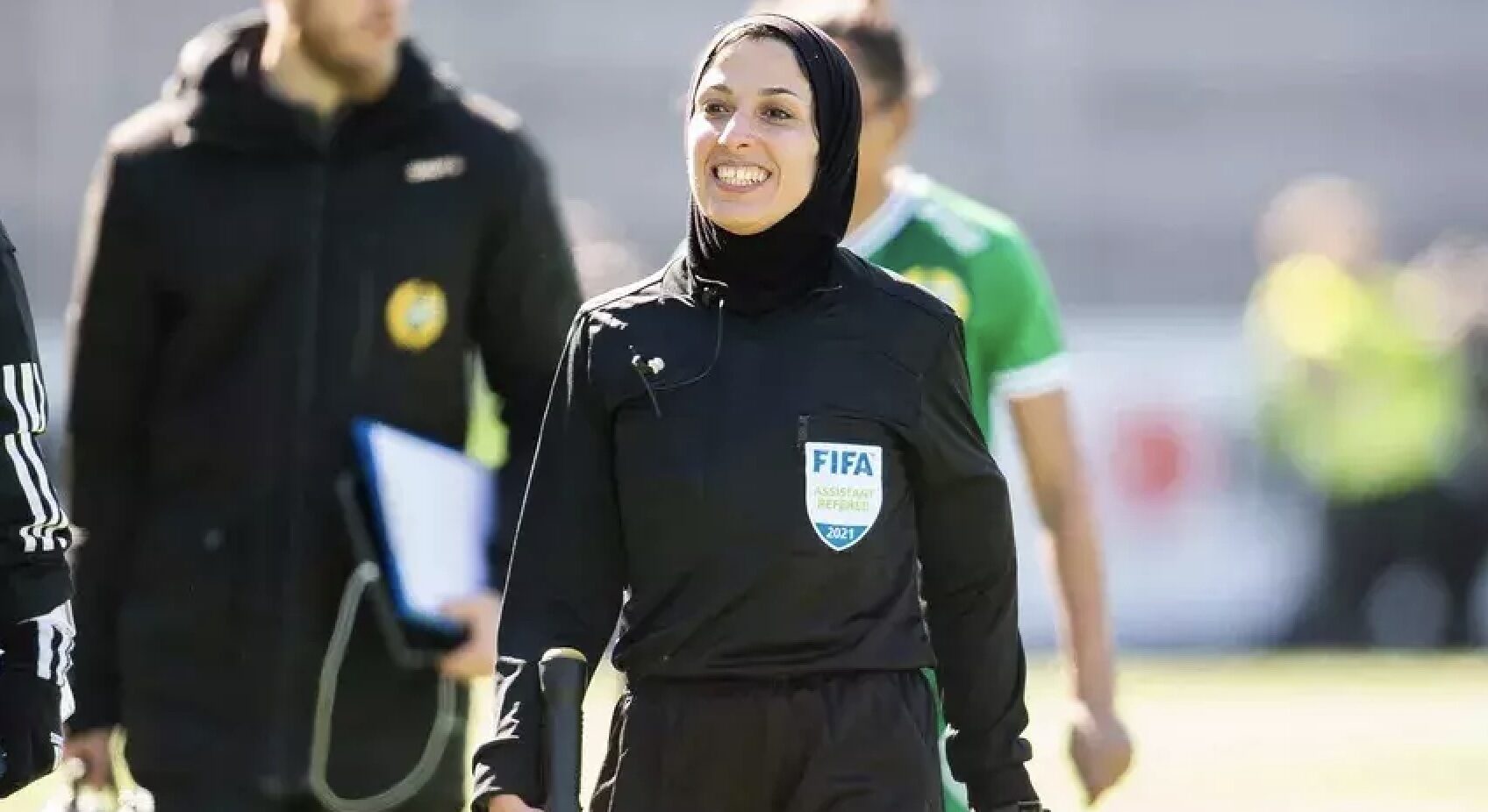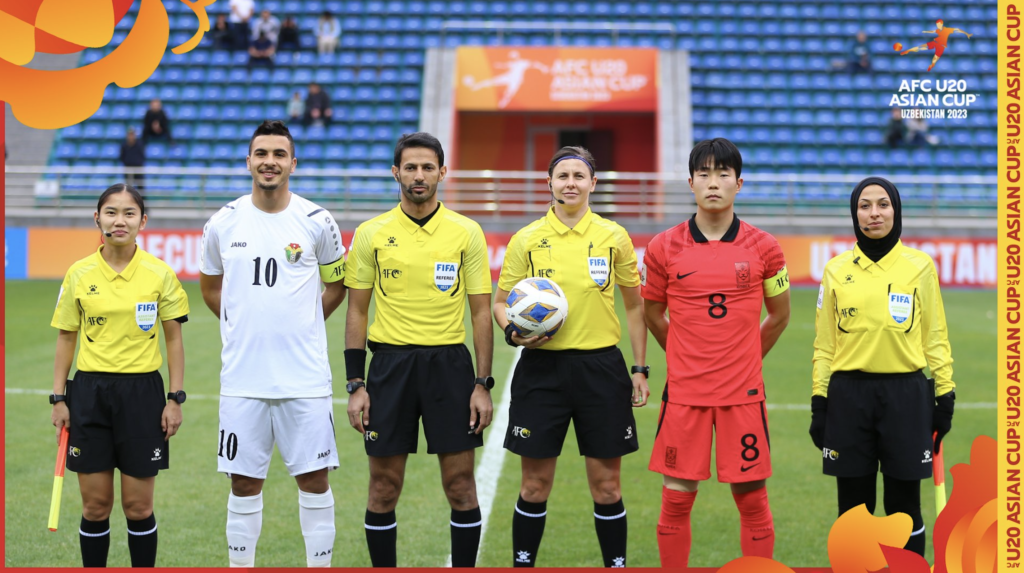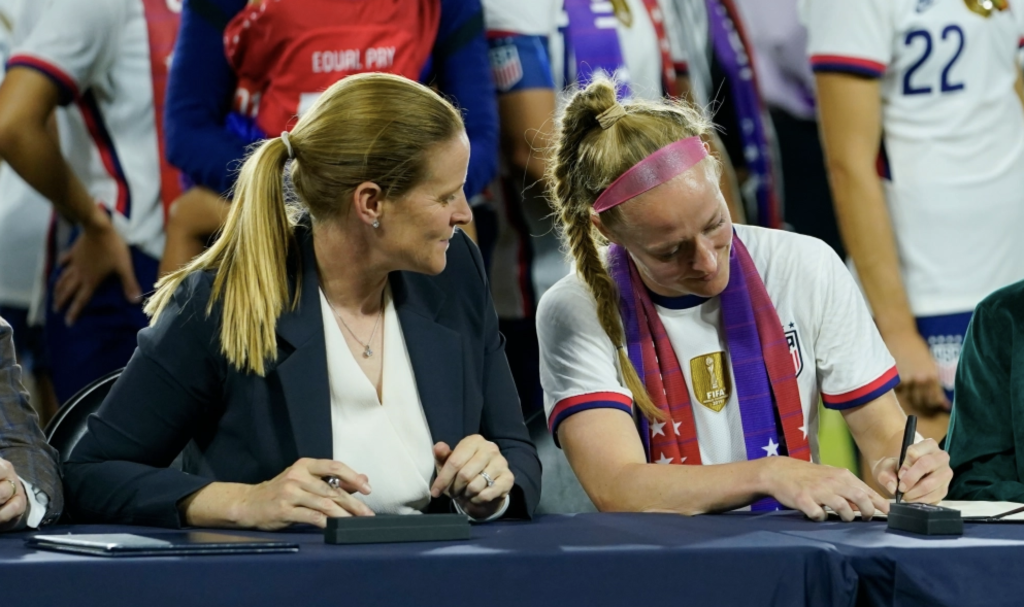Heba Saadieh: First Palestinian and Hijabi Referee at the World Cup

By: Maryem Bouatlaoui / Arab America Contributing Writer
Heba Saadieh will be the first Palestinian and the first hijabi to officiate a World Cup tournament in the 2023 FIFA Women’s World Cup in Australia and New Zealand.
The Start to Saadieh’s Success
Saadieh started playing soccer at a very young age, dreaming of one day representing her country internationally. Despite her dreams of becoming a professional soccer player, Saadieh studied physical education at Damascus University to become a physical education instructor. However, Saadieh recalls stumbling across a referee training camp and questioning the absence of women at the camp. In an effort to diversify the world of refereeing, Saadieh enrolled in the referee training camp in Damascus.
Saadieh’s road to success was a rough one as she not only had to face gender-based obstacles but also the lack of attention to soccer in Palestine. The men’s Palestinian soccer team has never qualified for the World Cup, and the women’s Palestinian soccer team’s first participation in the World Cup was in 2004. Nonetheless, Saadieh started locally making a name for herself as a referee for local matches in Damascus, Syria.

The start of the Syrian civil war in 2012 halted Saadieh’s career in Syria, causing her to flee to Malaysia. In Malaysia, she enrolled in the Football Association of Malaysia’s referee program. Shortly after, Saadieh moved to Stockholm, Sweden to pursue a FIFA referee license. In Sweden, she started officiating matches in the Division 1 league in the Swedish Football Association. In 2016, she received the international refereeing badge which then allowed her to officiate Asian Football Confederation Cup games, FIFA Women’s World Cup qualifiers, and 2020 Tokyo Olympics qualification matches.
Gender Equality in the Sports Industry
In an interview with Palestinian news radio outlet FajerTV, Saadieh expresses how urgent it is for women to assert themselves in male-dominated industries. She states, “Nothing is impossible… Nothing is easy, of course, there are difficulties, but [women] can challenge and overcome [obstacles] with resilience.” Following Saadieh, Palestinian Yasmine Nairoukh also received her international referee badge in May of 2023 with hopes of refereeing in the next World Cup.

FIFA still faces critical issues such as its gender wage gap. While the federation is pursuing social inclusion efforts, it is still coming short of affording women equal pay. In the 2023 FIFA Women’s World Cup, female players will be receiving 25 cents for every dollar a male player receives. While efforts the U.S. Soccer Federation has struck a deal to pay men and women equally, the rest of the world has yet to achieve equitable pay for all genders.
A Future for Women in Sports
While the sports industry is evidently still flawed, Heba Saadieh serves as global symbol of ethnic, religious, and gender diversification of the sports industry. Diversifying soccer referees by including all genders, ethnic backgrounds, and races is crucial for promoting inclusivity and breaking down barriers in the sport. Embracing diversity among referees ultimately enriches the game and fosters a sense of unity that reflects the global passion for soccer.
Check out Arab America’s blog here!









